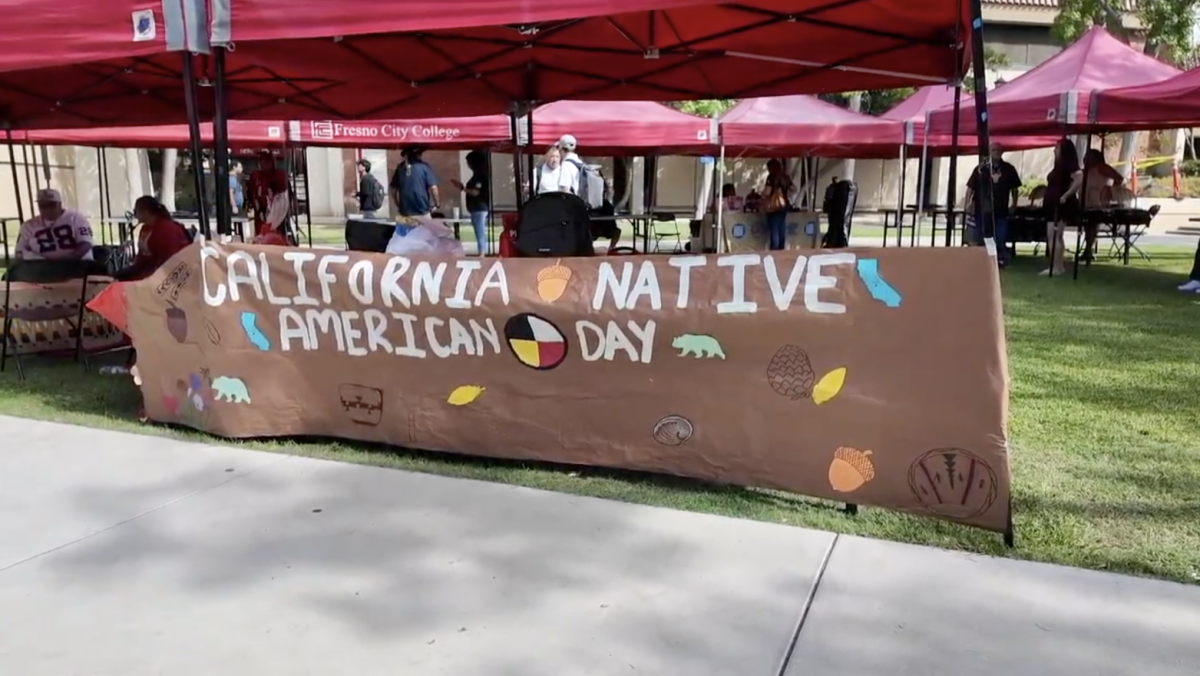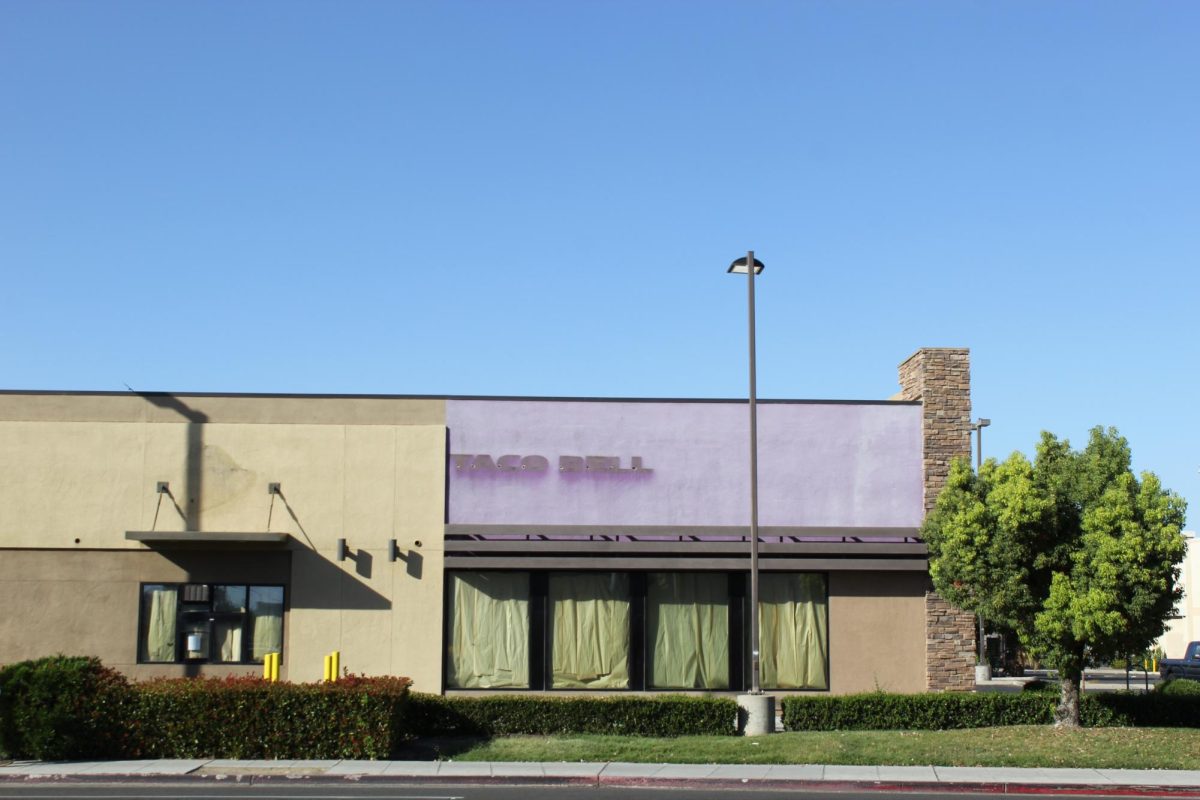**Corrected 2/16/2012
Claudia Habib, president of the Academic Senate, discussed the recent accreditation report on Friday.
Q: “Was it surprising that we were put on warning?”
A: We were hoping for a better result of course, especially because there was a lot of effort in tackling these. But the reality is we started working on these, especially at the district level, in the last 12 to18 months. So in the eyes of ACCJC, this is kind of late when the last accreditation was in 2005. But again, I credit the administration for putting things in place. At the same time, even though we were expecting a better result, we were not surprised. We knew it; we had done a self-study, and we already recognized these areas. We already knew that that’s why things were moving along.
Q: “Should the student body be worried about this warning?”
A: I don’t think so. Look at the commendations versus recommendations. And the students participate in these. We’ve had a lot of progress in participatory governance, our councils and committees have students involved. And they’ve done an outstanding job; they’re really, really, informed. You could talk to Cindy Quiralte or Trustee Chris Coronado; they’ve been involved, and I think they’re aware of what’s taking place.
My concern is when we talk about ‘oh my god we’re on warning,’ it looks like we’re failing, and that the community gets this perception, and we’re doing a lot of good things.
And to be in a panic mode, and this is my personal opinion not the senate’s opinion, it’s almost failing to see the work that a lot of people have done- faculty, administrators, classified staff, on getting these things corrected since the last accreditation. As far as the district, and that’s the touchy point because everyone understands that Fresno City College is doing well.
As far as the district, the concern is that when we went into warning last time; it was not for reasons of the college, although we had things to work on, but mostly [because of] the district and that now we’ve been placed on warning again. It’s because the district has not moved fast enough on this issue.
All I can say is that since we’ve had new administration in the district, these things have started to move. We’re putting in place task forces, committees, to respond to these issues. So we are not right now scrambling to respond; we have been working on it except that we only started when we had a new administration. We didn’t start it in 2006 or 2005.
Q: “When you say new administration, do you mean FCC or the district?”
A: The new leadership in the district…. So we’re in a good place. I’m very optimistic that things are being done from the district level. We have a district strategic plan; now we have an actual committee – Facilities. We are working on the facilities master plan, and we’re going to have a final report at the end of February or March. Technology — we have the Campus Works, a consulting firm that came last December to make an assessment of technology in the entire district and they had a very comprehensive, very good, report on Jan. 26, and it’s available.
As far as the organization reporting relationship of the centers, they recognize that the structure has to change, and they’re doing something about it. I really don’t know much but you can find out. Allocation, we had in the past, what we call a resource allocation model, how they distribute the money on the campuses, and Fresno City College has always felt that we carry the weight of the district, and we don’t perceive the allocation of funding as fair. And there was not a clear process on how that money was allocated, now we have a resource allocation task force working on a plan that works for the district, that is equitable and that everybody understands.
Q: What are the plans to respond to the accreditation recommendation?
A: The [accreditation] report is really good for us, it really is. I say that because we have one recommendation, and we have six commendations. Commendations are congratulations; you are doing this very well. So put that in perspective.
When colleges go into accreditation, there are five results that you could expect. The first one is reaffirm, great, good job. The next one is warning, then probation, then show cause, then you lose your accreditation. So when you look at that scale it’s almost like A, B, C, D. We’re at the first level. It sounds awful we’re on warning, but we have to be clear in saying that we’re not failing; we just have these areas that we have to look for improvement and work on improvement.
Now, I know that there is concern. My job is to represent the faculty and express what the faculty feels. And there are two opinions — there are faculty [members] who are really concerned because we were on warning on the previous accreditation, and we came out of warning, and now we’re on warning again. The main concern for those is that the reasons we are on warning are not because of the college, but because of the district.
Other members of faculty are feeling OK; the good news is we have one district recommendation that we are working on, tackling all these aspects. And if you look at each one of these, it’s mostly about integrated planning — conversations between all of the colleges and the district in issues that affect all of us, and having processes in place aligning the colleges in strategic planning, facilities, technology, the relationship with the centers, signature programs, funding and location, human resources, and research capacities.
And when you look at this, and you asked me what are the plans to tackle it? we are already working on it. We’ve been working on it, most of these not all, since last spring. So why am I optimistic? Because we knew we assessed; we had a self-study, a huge report, before we go into accreditation, for 18 months, we prepared this report and a lot of people worked on it. And it’s a looking inward on where we are on all these parts that ACCJC asked us to look at. So there were no surprises, we self-identified areas of concern such as communication, technology, I think there were a couple more. They were areas that we identified and we started working on, we put in place a communications task force and we’re working on that.
Q: Did the district jump the gun on attempting to get Willow International accreditation?
A: That has been a long process, and I don’t know all the details. But I can tell you that it’s a long process. It started a long time ago, but there were some things that were not done correctly, things that we didn’t know, for example, that a college in candidacy must have its own structure in place. Another thing that we didn’t know is that a new future college cannot have centers under its administration. That’s why they’re going to split Willow and Madera. Madera is going to stay with Reedley. They have deferred that status of college until spring, until they respond to some of these concerns.
Q: “What is your opinion on the lack of consistent leadership?”
A: It’s not unusual, because the process of hiring takes a long time. It’s not unusual to have interims. Yes it is a concern because it appears to be suddenly many people left from our campus.
We had a president that left, most recently our VP of Admin; we had a dean that retired; when people are going to retire you kind of know. It is expected that a lot of people are going to retire. It looks like for us that many people left at the same time. So we have an interim president and a search process and didn’t find a person that we felt was the right fit for our college.
So we continue to have an interim president, and what happen is, when you have an interim from internal, you have to fill in that position. To give you an example, Mr. Cantu was VP of instruction; he is now interim president. So somebody has to fill his spot, so Kelly Fowler came and took that spot. But that spot still belongs to Mr. Cantu if he decides to go back, or when we have a new president.
So we don’t have a vacant position; we are just filling up the spots. Someone has to do the job. So when Fowler left her spot in Clovis, someone took her spot there, but that spot still belongs to her. It’s a domino effect. So it looks like we have many, but in that case, the vacancies are really one that generates three interims.
**Correction: ACCJC was published as SCCJC.






